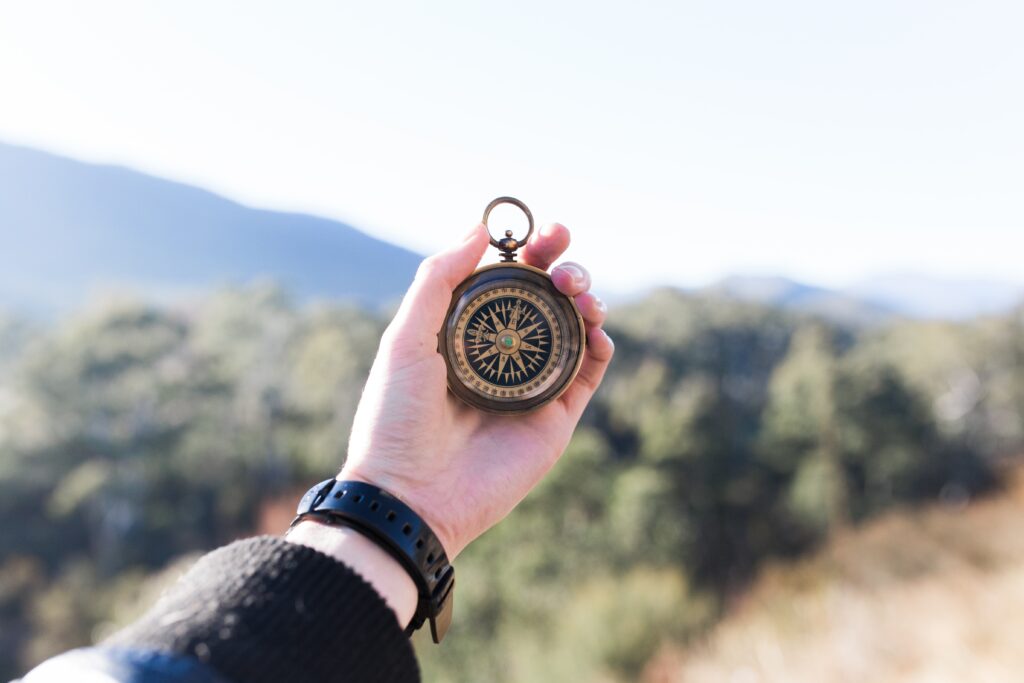Some time ago, I found myself in a class, surrounded by people who, like me, were on a quest for resilience. The topic of the day was digging deep into our personal values and beliefs. Sounds simple, right? But I was struggling, big time. I felt like I was wearing emotional armor, guarding myself from the very insights I had come to discover. It was as if I was standing at the edge of a cliff, afraid to take the leap into self-awareness. Finally, I mustered the courage to be vulnerable and to embrace the emotional intelligence and self-awareness required to really look inward.
That’s when it happened—a breakthrough moment that didn’t just open my eyes; it transformed the way I communicate with my daughter.
So, what was the key that unlocked this newfound connection with someone I hold dear? The answer is emotional intelligence. As the book Emotional Intelligence 2.0 so aptly states, “Emotional intelligence is your ability to recognize and understand emotions in yourself and others, and your ability to use this awareness to manage your behavior and relationships.”
In what follows, we’re going to unpack what emotional intelligence is all about, why it’s essential for your well-being, and how you can start tapping into its power. We’ll also share some gems from thought-provoking books and loop back to my personal journey as living proof of the transformative magic of emotional intelligence.

What is Emotional Intelligence?
You’ve likely heard the phrase “emotional intelligence” before, but let’s get real—what does it actually mean? At its heart, emotional intelligence is all about getting to know yourself and the people you interact with. It’s about being aware of emotions, yours and theirs, and using that knowledge to guide how you act and relate to others.
The book Emotional Intelligence 2.0 nails it when it says, “Emotions can help you and they can hurt you, but you have no say in the matter until you understand them.” So, let’s dig a little deeper. Emotional intelligence isn’t just one thing; it’s made up of four key parts:
Self-Awareness
My own journey toward emotional intelligence really took off in that resilience class. It was a turning point, a moment where I had to face myself, warts and all. Self-awareness is so much more than knowing your likes and dislikes or being aware of your talents and shortcomings. It’s about taking a deep dive into your emotional landscape. Self-awareness is about recognizing what sets you off and what lifts you up. It’s about understanding not just your strengths, but also your weaknesses, and how they all play a role in your reactions and relationships.
But why is self-awareness so crucial? Well, it’s the foundation upon which all other aspects of emotional intelligence are built. You can think of it as your emotional GPS. Just like a GPS helps you navigate the roads, self-awareness helps you navigate your emotional world. It guides your reactions and helps you understand why you feel a certain way in different situations. This understanding is the first step toward making better choices that lead to healthier relationships and a more fulfilling life.
So, how do you cultivate self-awareness? It starts with being honest with yourself. It’s about giving yourself the space to feel your feelings, even the uncomfortable ones, and asking yourself why you feel the way you do. It’s about reflecting on your actions and their outcomes. And sometimes, it’s about seeking feedback from those you trust to get an outside perspective. All of this helps you build a more accurate understanding of yourself, which is the first step in relating better to others and making choices that align with your true self.
Self-Management
Once you’ve started to get a grip on your own emotions, the next big step is learning how to manage them effectively. This isn’t about bottling up your feelings or pretending they don’t exist. No, it’s about channeling them in a way that serves you better. Imagine you’re stuck in a traffic jam and you’re late for an important meeting. Self-management is what helps you take a deep breath, keep your cool, and think of the best next step—instead of laying on the horn and making a stressful situation even worse.
But self-management goes beyond just keeping your emotions in check. It’s also about being accountable for your actions and choices. It’s easy to point fingers and blame others when things don’t go your way. However, self-management pushes you to own your part in any situation. It’s about recognizing that you’re the one in the driver’s seat of your life, and blaming others won’t get you to your destination any faster. Taking responsibility empowers you to make changes and steer yourself toward better outcomes.
So, how do you get better at self-management? Start by recognizing your triggers—the things that make you angry, sad, or frustrated. Once you know what sets you off, you can work on strategies to cope. Maybe it’s taking a few deep breaths, stepping away from a situation, or seeking support from someone you trust. It’s also about setting boundaries and knowing when to say no. By taking these steps, you’re not just managing your emotions; you’re managing your life in a way that aligns with your values and goals.
Social Awareness
Social awareness is about more than just knowing when to say “please” and “thank you.” It’s about truly tuning into other people’s feelings and understanding where they’re coming from. Imagine you walk into a room and everyone’s quiet. Social awareness is what helps you sense that maybe something serious has happened, rather than barging in with a loud joke. It’s like having emotional antennas that pick up on the mood and help you adjust your behavior accordingly.
But this skill goes beyond just reading a room. It’s also about being fully present in your interactions with others. Ever talk to someone who’s physically there but mentally miles away? It feels pretty crummy, right? Being socially aware means you’re not just physically present but emotionally engaged. You’re listening actively, making eye contact, and giving people the space to express themselves. It’s about creating a safe environment where real conversations can happen and genuine connections can be made.
So, how do you build social awareness? Start by really listening when people talk. And I mean really listen, not just wait for your turn to speak. Pay attention to body language, tone of voice, and other non-verbal cues. And don’t be afraid to ask questions to better understand someone’s point of view. By doing this, you’re not just being polite; you’re building bridges of understanding that can lead to more meaningful relationships and stronger communities.
Relationship Management
So, you’ve got self-awareness down. You’re managing your emotions like a pro, and you’re tuned into the feelings of those around you. What’s next? Relationship Management is where all these skills come together in a beautiful dance. It’s about using your emotional intelligence to build strong, meaningful relationships that enrich your life and the lives of others. Think about it: What good is understanding your emotions or those of others if you can’t use that knowledge to improve your relationships?
But let’s get real—this isn’t just about avoiding conflict or making small talk. It’s about truly connecting with people on a deeper level. It’s about creating an environment where everyone feels seen, heard, and valued. Whether you’re a leader at work, a partner at home, or a friend in someone’s life, relationship management is about inspiring people, not just directing them. It’s the difference between a boss and a leader, or a friend and a confidant. It’s what turns everyday interactions into lasting bonds.
So how do you get good at this? Start by being an active listener. Show empathy when others are speaking, and don’t be afraid to be vulnerable yourself. Remember, vulnerability breeds connection. Also, be willing to give and receive feedback. It’s a two-way street. And most importantly, be consistent. Consistency builds trust, and trust is the foundation of any strong relationship. So, whether you’re resolving conflicts, building a team, or simply deepening a friendship, remember that relationship management is your key to a more fulfilling, emotionally intelligent life.
Remember how I talked about my breakthrough with my daughter? That was emotional intelligence doing its thing, especially the parts about self-awareness and managing relationships. As we continue to navigate these concepts, you’ll see how these four pieces can be game-changers in your own life.

The Importance of Emotional Intelligence
So, why should you even bother with emotional intelligence? Trust me, it’s more than just a trendy phrase; it’s a set of skills that can really level up your life. Whether you’re trying to ace a job interview, make up with a friend, or just find a little more happiness in your everyday life, emotional intelligence is your go-to tool.
Let’s not forget what the book Dare to Lead tells us: “We desperately need more leaders who are committed to courageous, wholehearted leadership and who are self-aware enough to lead from their hearts, rather than unevolved leaders who lead from hurt and fear.” This isn’t just about being a boss at work; it’s about being a genuine, brave person in all areas of your life.
Now, let’s loop back to my own story. When I finally let my guard down in that resilience class, something amazing happened. I didn’t just learn about myself; I became a better dad to my daughter. Our relationship didn’t just improve—it flourished. That’s the magic of emotional intelligence. It doesn’t just change how you see yourself; it changes how you connect with everyone in your life.
So, whether you’re a parent, a friend, a teammate, or a leader, emotional intelligence is your golden ticket to building stronger relationships and living a life that feels more rewarding.

Emotional Intelligence and the Journey Ahead
So, there it is. Emotional intelligence isn’t a luxury; it’s a necessity for anyone who wants a life filled with meaningful relationships and personal growth. And guess what? You can start right now.
So, we’ve dug deep into emotional intelligence—what it is, why you should care, and how to start growing it. But let’s get real; this is a lifelong journey, not a quick fix. My own “aha moment” in that resilience class taught me that the path to emotional intelligence is built on self-awareness, empathy, and a real willingness to grow and change.
“Daring leaders must care for and be connected to the people they lead,” says the book “Dare to Lead.” This isn’t just about being a boss or a manager; it’s about leading your own life with guts and heart.
Now, think back to my story about my daughter. That change didn’t just magically happen. It took me letting my guard down, looking in the mirror, and leaning into emotional intelligence big time. And guess what? The journey isn’t over. Every single day is a new chance to connect, to get it, and to lead from the heart.
So, what’s your next move? Maybe it’s diving into one of the awesome books we’ve chatted about. Or maybe it’s as simple as taking a few quiet moments each day to check in with yourself. Whatever you choose, make the commitment to grow your emotional intelligence. Believe me, your future self will be high-fiving you.

